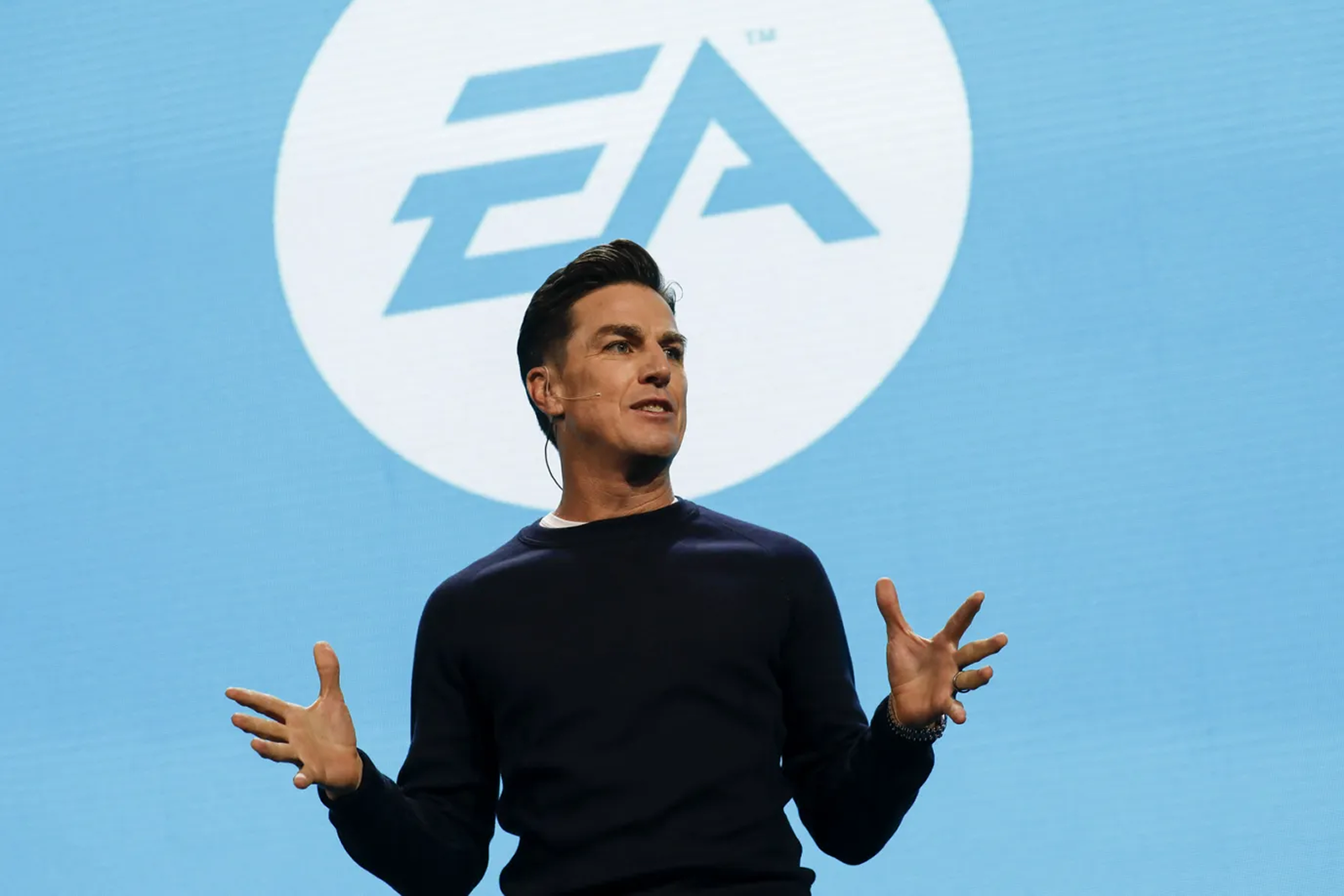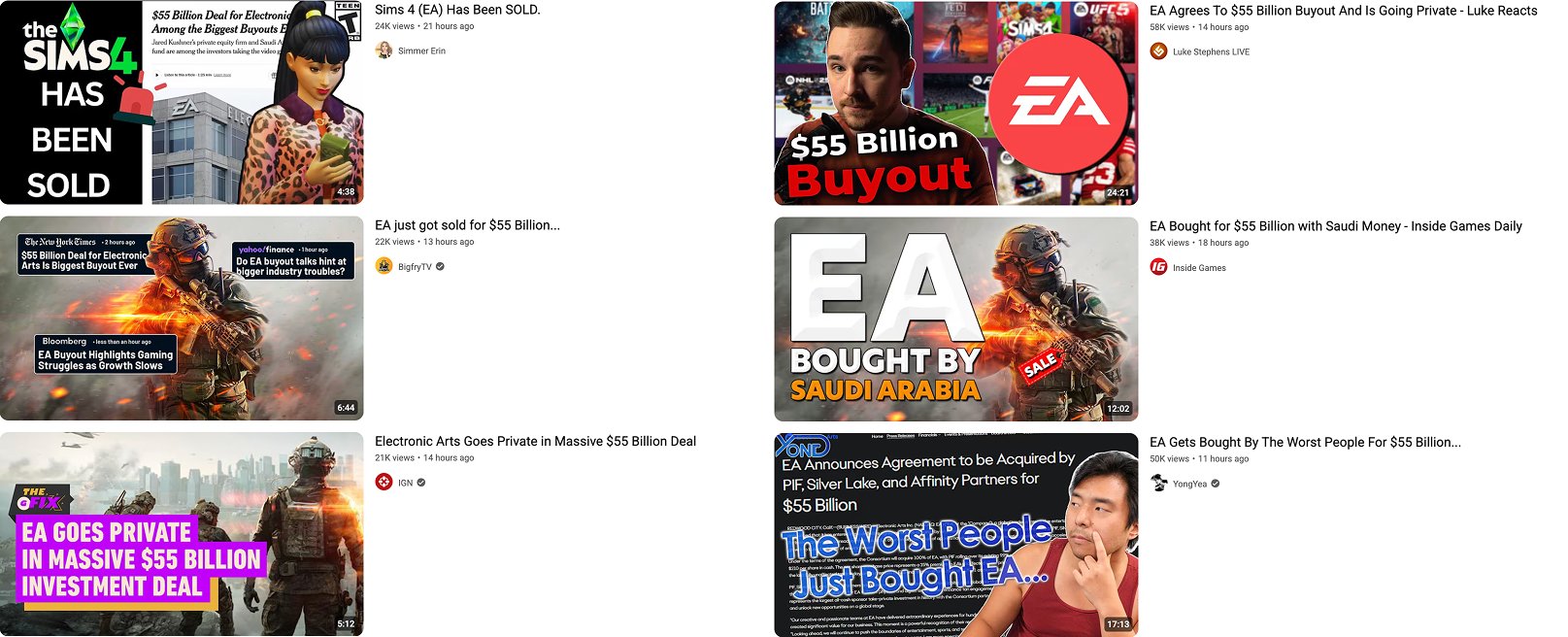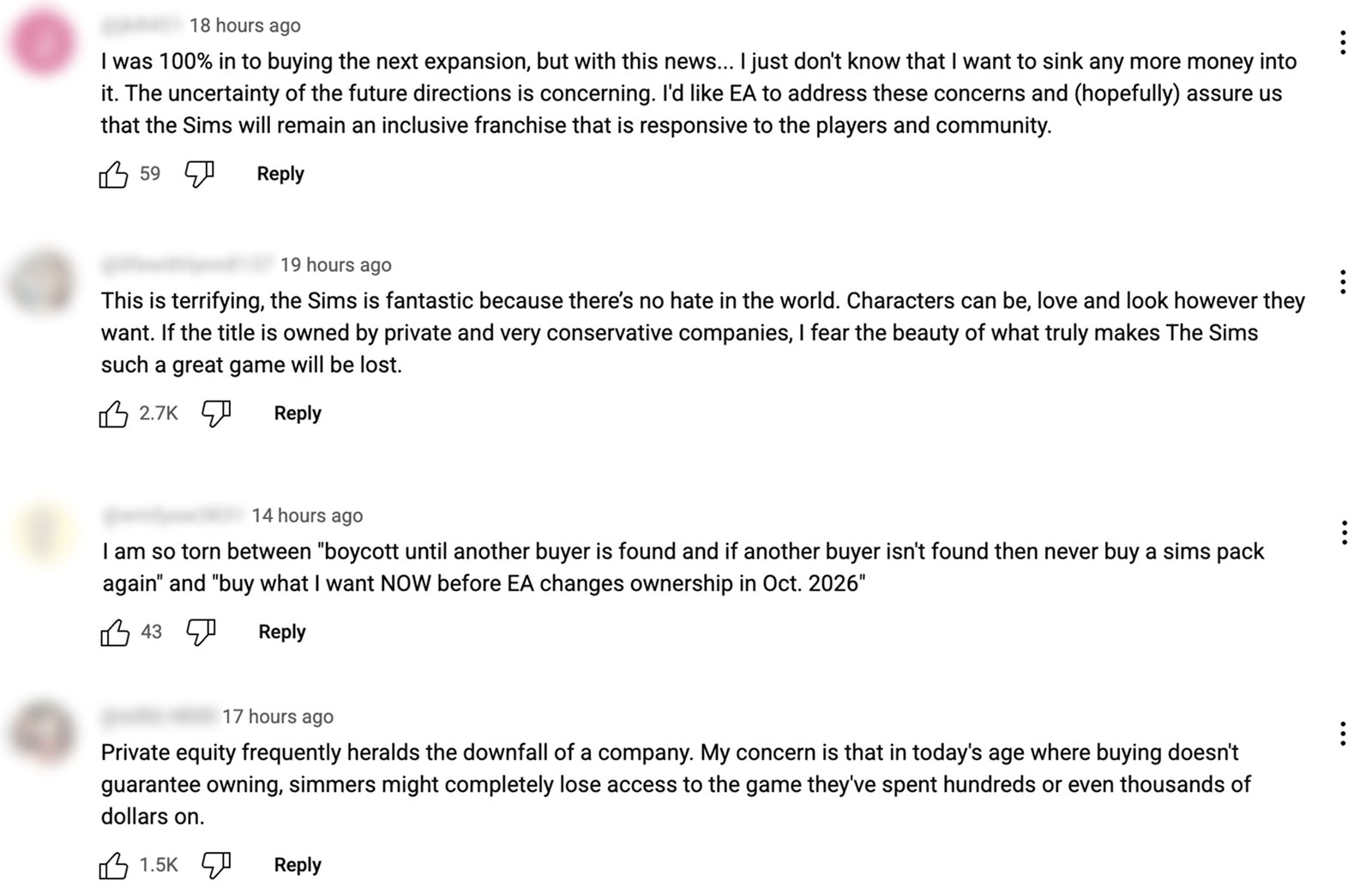EA Sold for $55 Billion: What It Means for The Sims
The entire Electronic Arts brand and its catalog — including the Sims franchise — have been sold to private investors for $55 billion. The investor group includes Jared Kushner of Affinity Partners (Donald Trump’s son-in-law), Saudi Arabia’s sovereign wealth fund PIF, and Silver Lake.

Key Points of the Deal
According to the press release, this will be the largest take-private transaction in history (when a public company is bought out entirely by investors and delisted from the stock market). EA shareholders will receive $210 per share, a 25% premium over the stock price prior to the announcement.
The consortium is acquiring 100% of EA. The partners said they plan to accelerate EA’s growth and expand into new areas across gaming, sports, and digital entertainment.
EA’s board of directors unanimously approved the deal as beneficial for shareholders and promising for the company’s future. EA CEO Andrew Wilson emphasized that the transaction recognizes the team’s achievements and is a step toward building “transformative entertainment of the future.” Wilson will remain as CEO, and EA’s headquarters will stay in California.

Why Is Saudi Arabia’s PIF Involved?
Saudi Arabia’s Public Investment Fund has been significantly expanding its footprint in gaming. It already owns a 9.9% stake in EA and has also invested in Nintendo.
Games are popular among younger demographics, and 63% of Saudi Arabia’s population is under 30, according to the most recent census. This makes gaming a high-growth sector, explained Joost van Dreunen, a longtime games industry researcher.
Analysts at Baird Equity Research noted that the “connections to both the Saudi government and the Trump administration” may be “a strategic asset for EA in navigating any regulatory speed-bumps.”
Source: ABC News
Artificial Intelligence and Debt
According to Insider Gaming, EA’s new owners plan to use artificial intelligence to cut operating costs and, in the long run, increase profitability. This is crucial because the deal will leave EA carrying $20 billion in debt. That could influence the amount of paid content, its pricing, and the aggressiveness of monetization strategies.
This isn’t so much about player-facing AI (like content generation in games), but about internal processes: automating development, testing, asset creation, and more.
The Finanсial Times added that smart algorithms could replace software engineers, saving EA around $2 billion annually from its R&D budget.
Public Reaction
So far, there’s no information on whether individual studios, such as The Sims developer Maxis, will face organizational changes. Still, the deal has sparked concern among industry experts, mod creators, content makers, and fans.


Anonymous Employee Comments
Although CEO Andrew Wilson reassured staff that “our values and our commitment to players and fans around the world remain unchanged”, recent history — including two large waves of layoffs over the past two years — and PIF’s Saudi ties worry some EA employees:
- “It just shows how many people have been collateral this past year for executives to make out rich. Nothing feels great. And we know, when the deal closes, it’s going to get worse before it gets better, if better is even possible.”
- “I’m nervous about what this means in terms of workforce once the deal is closed, as layoffs usually follow those types of acquisitions.”
- “And on a personal level, those future owners are really not in line with my values and beliefs.”
Source: gamefile.news
Hope for a Brighter Future
There are also more optimistic takes. According to ABC News, moving into private ownership will allow EA to restructure its operations without the constant pressure of shareholder demands or stock market fluctuations. This could give EA “a little bit more breathing room to do what they do," explained Joost van Dreunen.
Theoretically, that could “result in more or better games,” said Ben Schneider, professor at Worcester Polytechnic Institute. At the same time, he added, “gamers are generally not enthralled with corporate owners influencing how game makers make their games, to say the least.”
Source: ABC News



